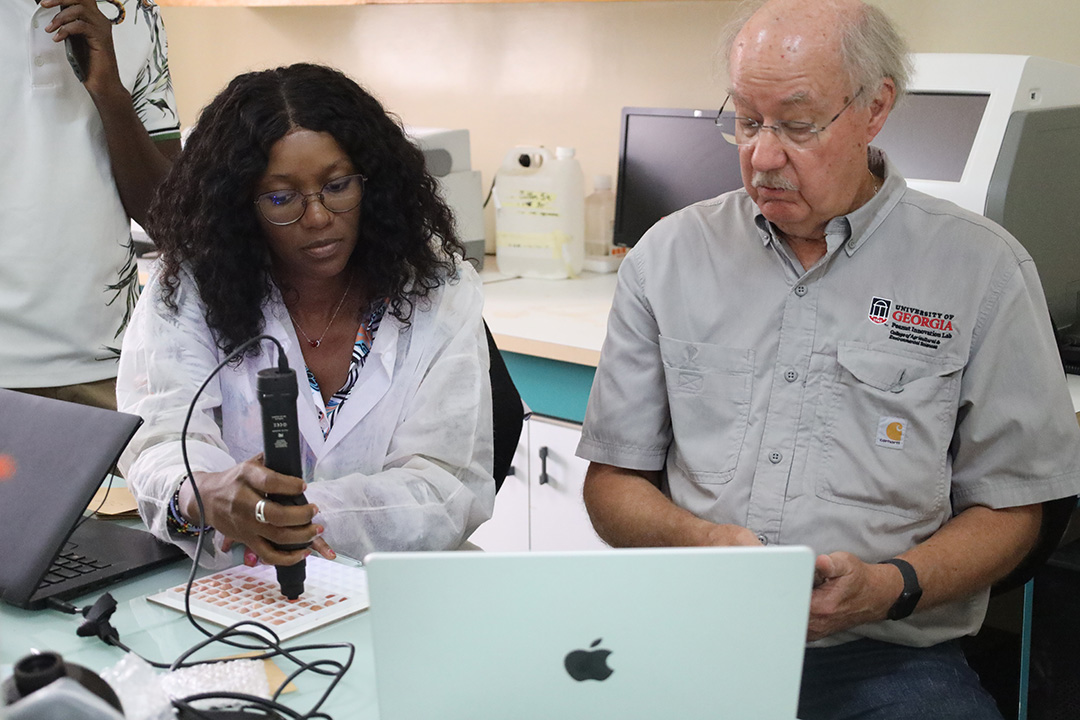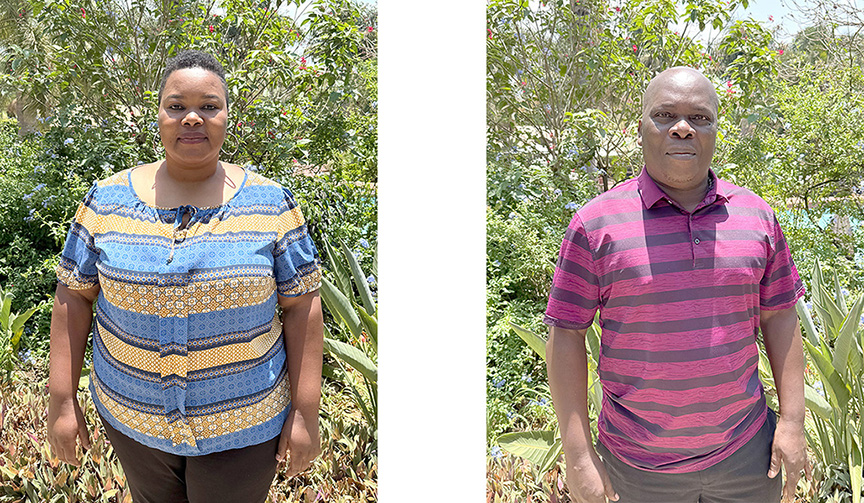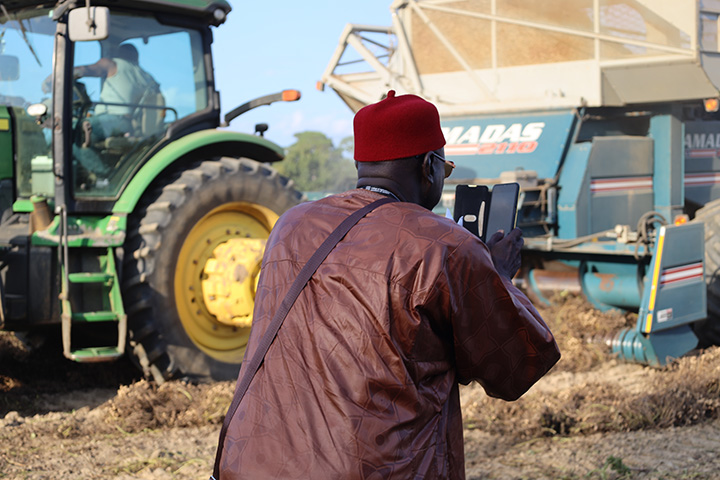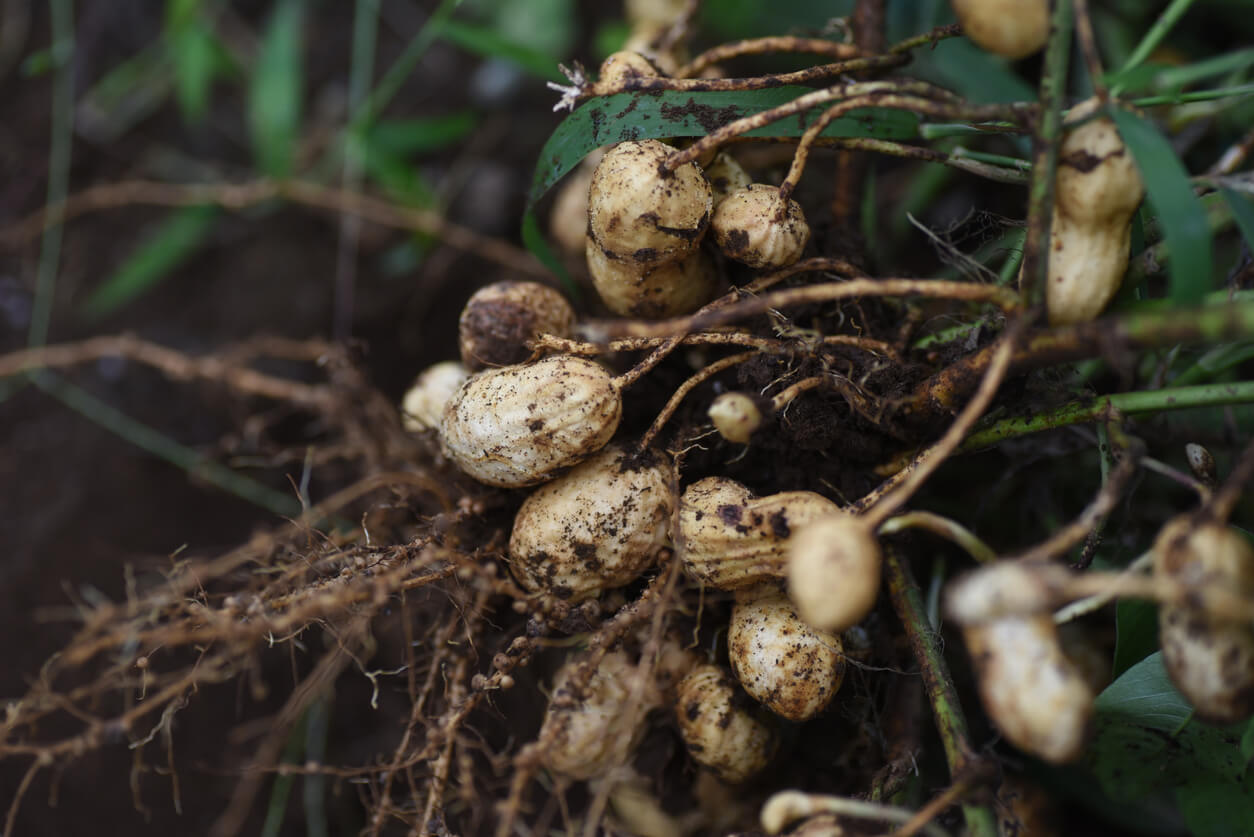Wouldn’t it be nice if you could look inside a peanut kernel and see the nutritional content hiding there? It’s possible.
A device calibrated and deployed by the Peanut Innovation Lab is allowing partners to test peanut seed where they are – avoiding time-consuming and expensive off-site lab tests – to see which plants have the desired oil content. The technology is saving money and speeding up the process to develop new high-oleic lines where people need them the most.
High-oleic peanut varieties are a priority in many places because that oil content is healthier and makes the nut itself even more shelf-stable.
“High oleic content is an important trait for the future, and these devices can be a game-changer for plant breeders with limited time and resources,” said Dave Hoisington, who directs the Peanut Innovation Lab and worked with JLA Laboratories to validate the device for use with peanuts. “By validating the device and equipping partners with this technology, we’ve allowed them to make quicker selections that will get nutritious new peanut varieties in farmers’ fields sooner and at less expense.
Standard peanut varieties contain about 50% oleic acid and about 35% linoleic acid. High-oleic nuts shift that ratio to 80% oleic and about 4 % linoleic – similar to olive oil.
The first high oleic acid peanut cultivar was developed in Florida in the 1980s through a spontaneous mutation. Since then, breeders have been working to cross the trait into varieties grown in their countries.
High oleic content is a tricky asset because it involves both the genes of the variety and the maturity of the harvested nuts. Given the indeterminate nature of peanuts (each peanut is a different age like on a tomato plant) each kernel on a plant can have a different oil content. In addition, since the trait is invisible to the naked eye, it’s very easy to lose the genes required through seed mix-ups.
Breeders can test using gas chromatography and near-infrared spectrometry, but those technologies can be expensive. Knowing that a new handheld portable NIR spectrometer might cut the cost and expense considerably, the Peanut Innovation Lab validated that the device for peanuts, established testing protocols, deployed units to partners in Africa and trained those partners to use the device.
"As a team, we like the device because it streamlines our work by saving time and costs, improving accuracy, and providing more data at both individual and family levels. It also enhances efficiency by integrating seamlessly into our workflow,” said Aissatou Sambou, the peanut breeder for Senegal.
Before breeders in Senegal had the NIR device, they checked for the high-oleic genes using a molecular marker assay. When the device arrived, they re-tested and found 100% correspondence. The NIR found high-oleic content in every seed that they previously found to carry the genetic trait for high-oleic content.
Now, technicians can screen seeds much faster and at no cost, avoiding cumbersome genetic tests that required them to chip each seed and send them away for genetic analysis. By screening larger numbers of seed, breeders can progress quicker in selecting the best individuals.
“It also allows them to screen for high oleic lines so any mistakes in the process can be rectified before they invest in advancing materials, and for checking that what they think they have is really correct,” Hoisington said.
The lab deployed four units in Africa: two in Senegal (CERAAS and ISRA), one in Ghana (CSIR-SARI) and one to Malawi.
The device can also be calibrated to detect other content, sch as total protein, moisture and carbohydrates. The instrument provides a quick, easy-to-use, non-destructive method that can be performed almost anywhere, and has already been used to evaluate lines in Ghana and Uganda.
Funded by the U.S. Agency for International Development, the Feed the Future Innovation Lab for Peanut is headquartered at the University of Georgia College of Agricultural and Environmental Sciences. The lab works with scientists in more than two dozen institutions in the U.S. and Africa.








